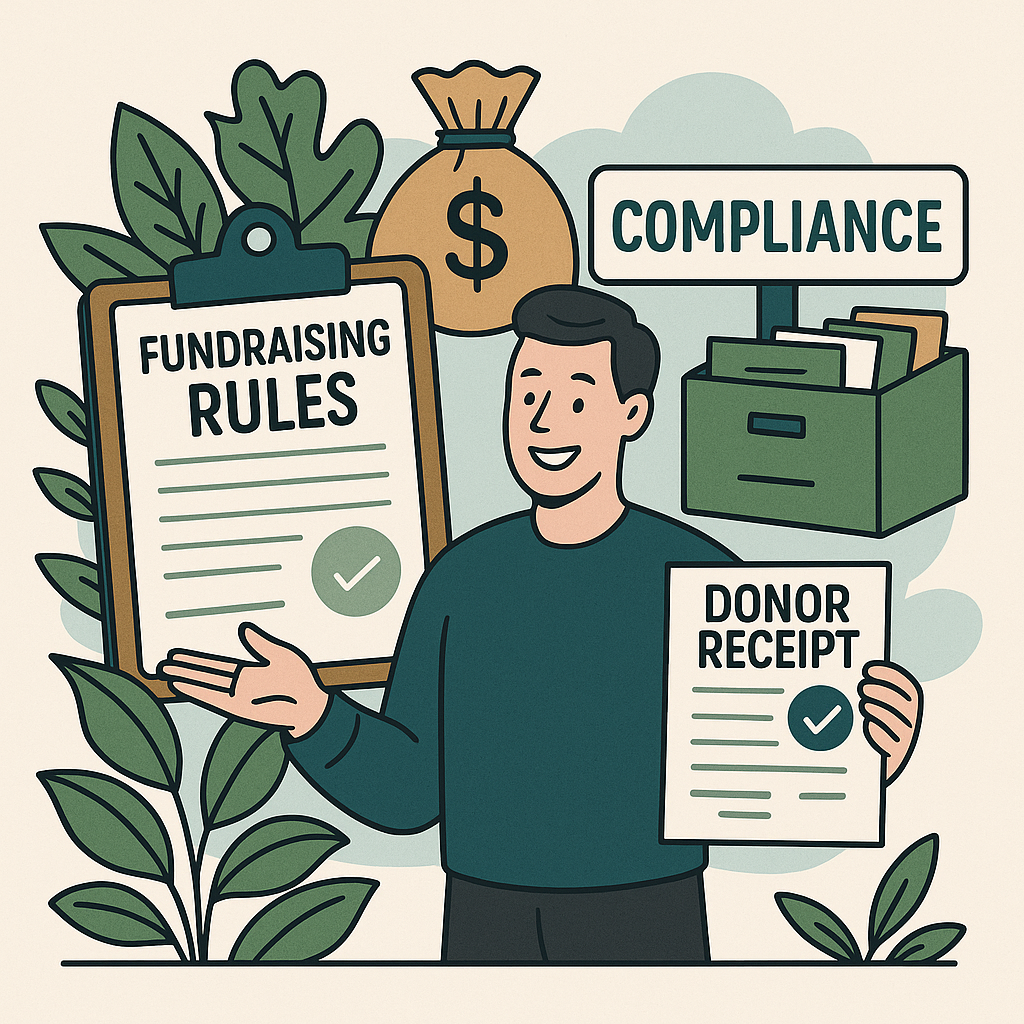What Utah Nonprofits Must Know About Fundraising Rules and Donor Receipts
Plain-English guide to registration, disclosures, receipts, and recordkeeping
Fundraising can be the lifeblood of any Utah nonprofit, but it is also one of the most regulated areas of charitable activity. Whether you raise money through community events, online donations, or annual campaigns, state and federal rules shape how you ask for support and how you acknowledge it.
This guide breaks down Utah fundraising and donor receipt requirements in plain English so your organization can stay compliant, build donor trust, and keep its tax-exempt status intact.
Registering for Charitable Solicitations in Utah
Before collecting a single dollar, most Utah nonprofits must register with the Utah Division of Consumer Protection under the Charitable Solicitations Act.
Fundraising Activities That Need Approval or Notice
- Raffles and drawings. Treated as games of chance and may require local approval.
- Crowdfunding campaigns. Must identify the charitable entity that benefits from the funds.
- Professional fundraising events. If you hire outside fundraisers, file contracts with the Division of Consumer Protection before solicitation begins.
Disclosure Requirements on Forms and Websites
- Include your organization’s legal name and purpose on solicitation materials.
- State that your organization is registered with the Utah Division of Consumer Protection and how donors can contact the agency for verification.
- Make it clear on donation pages whether gifts are tax-deductible.
- If you raise money for a specific purpose, use those funds accordingly.
Professional Fundraisers and Third-Party Solicitations
- Professional fundraisers must be licensed in Utah.
- Written contracts are required and must specify fees, payment structure, and duties.
- Third-party fundraisers must submit copies of agreements to the Division of Consumer Protection before starting work.
Your organization remains responsible for legal compliance even when others solicit on your behalf.
Issuing Donor Receipts That Meet IRS Standards
Proper donor receipts, also called acknowledgments, are essential for donors who claim tax deductions.
In-Kind, Online, and Anonymous Donations
- In-kind donations. Describe the gift but do not assign a dollar value. The donor determines fair market value.
- Online donations. Use a secure payment platform clearly linked to your nonprofit.
- Anonymous gifts. Keep internal records even if the donor declines public recognition.
Recordkeeping and Reporting
Maintain records of all donations, receipts, and expenditures for at least three years. Keep digital and paper copies of acknowledgment letters, tax receipts, and registration renewals.
Annual renewal filings with the Division of Consumer Protection typically include financial statements or IRS Form 990, updated officer and board information, and a description of fundraising methods used.
Video and Social Learning Hub
YouTube: Nonprofit Fundraising & Receipts
Keep Your Fundraising Compliant
By registering properly, disclosing clearly, and issuing accurate donor receipts, your nonprofit protects its mission and strengthens donor confidence.
Talk to a Utah AttorneyUtah Law Explained helps nonprofits, donors, and everyday Utahns understand where local and federal rules meet. This article is educational, not legal advice.
